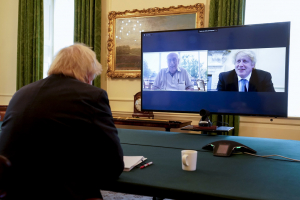Support migrant centric journalism today and donate

By Sanwar Ali:
Designer and author of the first ever AI sponsor licence system found as a GPT in ChatGPT4 under "workpermit.com Sponsor Licence". There is currently a more advanced system under development.
UK Work Visas: A Critical Look at the Looming Salary Threshold Increase, Certificate of Sponsorship (CoS) Implications, and Workforce Shortages
Introduction
The United Kingdom's appeal to skilled professionals is undeniable, with its dynamic economy and world-renowned universities attracting talent worldwide. The Skilled Worker Visa, used by healthcare professionals, IT professionals and others, has served as a crucial work visa pathway. However, recent immigration policy changes are fundamentally altering the landscape, with significant salary threshold increases and the removal of the Shortage Occupation List (SOL). These changes have far-reaching implications for businesses with a sponsor licence seeking to sponsor foreign talent through the issuance of Certificates of Sponsorship (CoS).
A Policy Shift Focused on reducing Immigration
The UK government's announcement of a substantial hike in the minimum salary threshold for Skilled Worker Visa sponsorship (excluding Health and Care Worker Visas), from £26,200 to £38,700 effective April 4, 2024, has sent shockwaves through the immigration system. This policy shift goes beyond streamlining talent acquisition; it's a clear attempt to reduce immigration numbers. Further restrictions, like the removal of dependant rights for certain visa categories, reinforce this objective.
Surge in Applications: A Scramble for Legacy Benefits
The announcement triggered a surge in visa applications as individuals rushed to secure visas under the current lower salary threshold. This surge has placed significant strain on immigration services already contending with Brexit complexities and the COVID-19 pandemic.
Business Concerns: Talent Shortages, Rising Costs, and CoS Challenges
UK businesses reliant on skilled foreign labour face new challenges. The increased sponsorship costs associated with the higher salary threshold threaten to exacerbate existing talent shortages in sectors like technology. With the removal of the Shortage Occupation List, businesses will no longer have the option of reduced salary requirements for in-demand roles, further increasing costs and making it more difficult to secure the necessary CoS to sponsor workers. Industry leaders and associations are voicing concerns about the policy's impact on their ability to find and retain skilled workers, potentially impacting business growth and the UK's global competitiveness.
Salary Changes and Challenges for Healthcare Workers
Fortunately, the Health and Care Worker Visa route will not face such a huge increase in salary thresholds.. Effective April 4, 2024, the minimum salary for most roles under this visa increases from £20,960 to £23,200. Healthcare workers must be paid the higher amount if the typical salary ("going rate") for their specific job exceeds this minimum. Specific rates apply to nurses, midwives, and some allied health professionals, while healthcare workers with PhDs relevant to their job may still be eligible for some flexibility.
A Specific Sector Under Scrutiny: The Healthcare Challenge
The healthcare sector serves as a prime example of potential policy pitfalls. Increased salary requirements for healthcare roles and new sponsorship rules for care workers (including CQC registration requirements for employers) could exacerbate existing staffing shortages. Healthcare representatives have expressed deep concern about the impact on their ability to provide quality patient care and the UK's future ability to address labour shortages in the sector. The added hurdle of higher salary costs impacting their ability to secure CoS further compounds the challenges faced by healthcare employers.
Conclusion: A Crossroads for UK Immigration
The increase in the Skilled Worker Visa salary threshold (with the exception of the Health and Care Worker Visa), along with the removal of the Shortage Occupation List, marks a critical juncture in UK immigration policy. The government it seems wants more highly skilled professionals to reduce immigration levels. However, the overall objective of reducing immigration numbers carries significant risks, particularly regarding employers' ability to obtain the necessary skilled workers to address workforce needs. Time will reveal the policy's long-term impact on the UK's workforce, economy, and global standing.
Need More Analysis? Contact Us!
For personalized advice on how these policy changes could impact your business or industry, contact our team of experts. We'll help you navigate the complexities of the UK sponsor licence system and develop workforce strategies for success.
How Workpermit.com Can Help with sponsor Licences
If you need help with employing Skilled Workers and applying for a Sponsor Licence, including complying with your Sponsor Licence obligations, HR responsibilities, etc workpermit.com can help.
For more information and advice, please contact us at 0344 991 9222 or at london@workpermit.com(link sends e-mail)





















